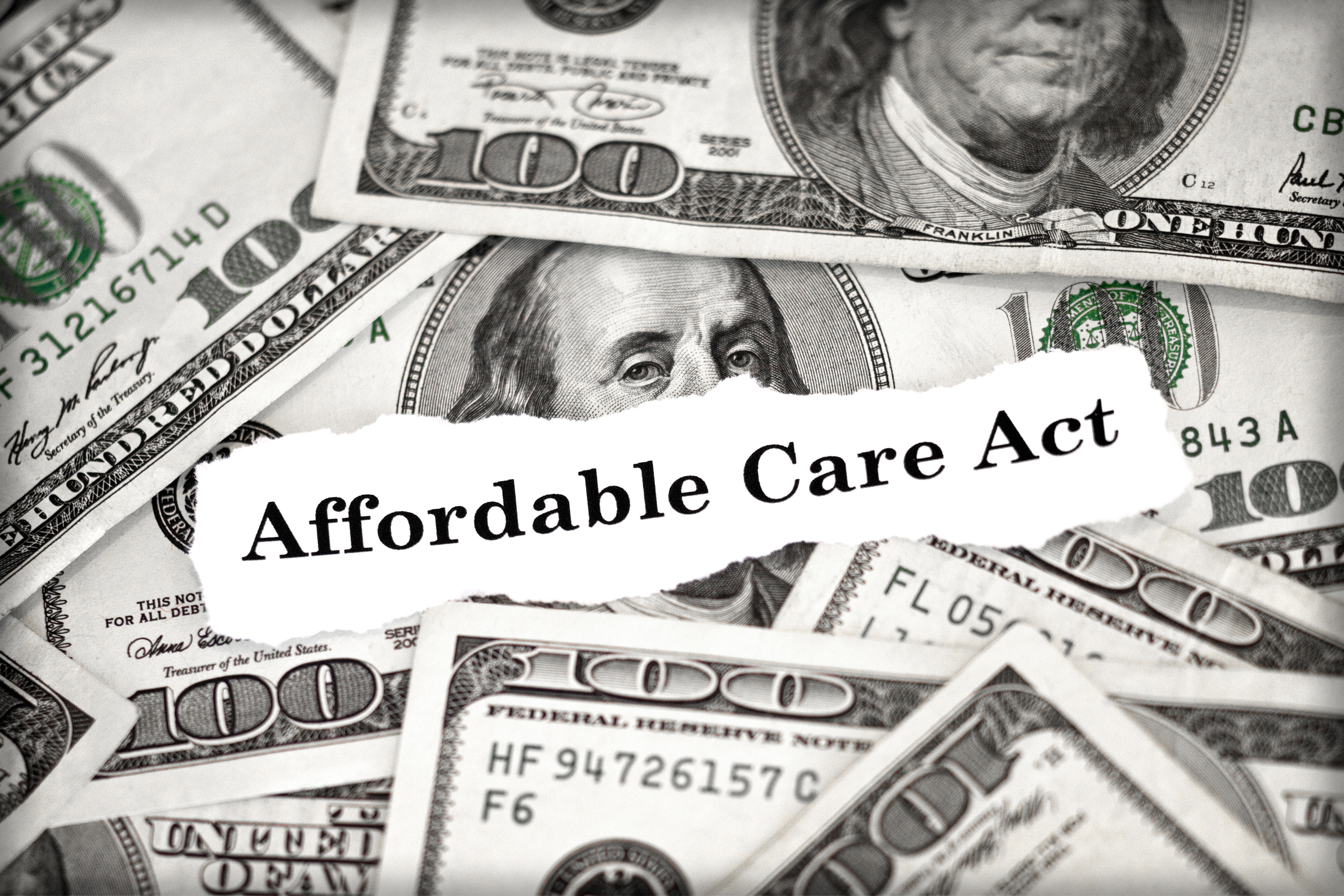Calculating the Health Insurance Subsidy
Income, age, family size and location all factor into the calculation for the tax credit to help pay premiums for policies purchased on the exchanges.

Profit and prosper with the best of Kiplinger's advice on investing, taxes, retirement, personal finance and much more. Delivered daily. Enter your email in the box and click Sign Me Up.
You are now subscribed
Your newsletter sign-up was successful
Want to add more newsletters?

Delivered daily
Kiplinger Today
Profit and prosper with the best of Kiplinger's advice on investing, taxes, retirement, personal finance and much more delivered daily. Smart money moves start here.

Sent five days a week
Kiplinger A Step Ahead
Get practical help to make better financial decisions in your everyday life, from spending to savings on top deals.

Delivered daily
Kiplinger Closing Bell
Get today's biggest financial and investing headlines delivered to your inbox every day the U.S. stock market is open.

Sent twice a week
Kiplinger Adviser Intel
Financial pros across the country share best practices and fresh tactics to preserve and grow your wealth.

Delivered weekly
Kiplinger Tax Tips
Trim your federal and state tax bills with practical tax-planning and tax-cutting strategies.

Sent twice a week
Kiplinger Retirement Tips
Your twice-a-week guide to planning and enjoying a financially secure and richly rewarding retirement

Sent bimonthly.
Kiplinger Adviser Angle
Insights for advisers, wealth managers and other financial professionals.

Sent twice a week
Kiplinger Investing Weekly
Your twice-a-week roundup of promising stocks, funds, companies and industries you should consider, ones you should avoid, and why.

Sent weekly for six weeks
Kiplinger Invest for Retirement
Your step-by-step six-part series on how to invest for retirement, from devising a successful strategy to exactly which investments to choose.
I read your articles about the health insurance changes for 2014 and had a couple of follow-up questions. How is the premium subsidy calculated? Do the subsidies vary based on age and location, or just on income? And when can I sign up for a policy?
The Kaiser Family Foundation’s subsidy calculator can help you estimate how much you could receive as a subsidy for health insurance policies purchased on the exchanges, based on estimates of benchmark premiums for someone your age with your income and family size. Premiums will also vary by location, and specifics for your state exchange will become available in October (that’s when you can sign up for a policy that takes effect on January 1). Go to HealthCare.gov for links to your state exchange.
You can’t get a subsidy if your employer offers coverage that is considered to be “affordable” (for the definition, see Get Ready for Obamacare). If you pass that test, then you need to meet the household income test. Subsidies are available to people whose modified adjusted gross income is 100% to 400% of the federal poverty level, which is about $11,500 to $46,000 for an individual and $24,000 to $94,000 for a family of four. See Who Qualifies for a 2014 Health Insurance Subsidy for an explanation of modified adjusted gross income.
From just $107.88 $24.99 for Kiplinger Personal Finance
Become a smarter, better informed investor. Subscribe from just $107.88 $24.99, plus get up to 4 Special Issues

Sign up for Kiplinger’s Free Newsletters
Profit and prosper with the best of expert advice on investing, taxes, retirement, personal finance and more - straight to your e-mail.
Profit and prosper with the best of expert advice - straight to your e-mail.
The size of your income also determines the maximum amount you have to pay for insurance -- starting at 2% of your income if your modified adjusted gross income is below 133% of the federal poverty level and gradually rising to 9.5% of your income if your modified AGI is 300% to 400% of the federal poverty level. A family of four with a household income of $60,000, for example, earns about 255% of the federal poverty level. They’d be expected to pay no more than 8.19% of their income -- $4,913 per year, or about $409 per month -- for a “benchmark” policy, and they would receive a tax credit to make up the difference.
The benchmark policy is the second-to-lowest-cost silver plan in your area, and the premiums for that policy will vary based on location and age. In almost all states, insurers can charge a 64-year-old up to three times as much as they charge a 21-year-old. The Kaiser Family Foundation recently released a study that shows the cost of that benchmark policy in 17 states and the District of Columbia (where the information is currently available). Additional states will release their information by October 1.
Premiums for the benchmark, second-to-lowest-cost silver policy are $763 per month for a family of four with two 40-year-old adults in Los Angeles, according to Kaiser. If their monthly premiums for the benchmark policy are capped at $409 per month based on their income, they would get an advance tax credit worth $354 to pay the remainder of the bill. But they can apply that credit to any other silver policy, or to a bronze, gold or platinum policy and may end up paying more or less than the $409 per month depending on the cost of the other policy.
Income, age and family size can make a big difference in the calculation. A 60-year-old couple in Los Angeles with a household income of $30,000, for example, earns about 193% of the federal poverty level. They’d be expected to pay no more than 6% of their income for the benchmark policy, which equals $1,800 per year ($150 per month). The Kaiser Family Foundation study found that their benchmark plan in L.A. would cost $1,082 per month, so they’d receive a tax credit of $932 per month.
The Kaiser study found that the lowest-cost bronze plan they could buy costs $797 per month; if they chose that plan, they would owe no additional premiums after the tax credit. Because that couple earns less than 250% of the federal poverty level, they’d also qualify for a cost-sharing subsidy that reduces co-payments and other out-of-pocket costs, but only if they buy a silver plan.
Profit and prosper with the best of Kiplinger's advice on investing, taxes, retirement, personal finance and much more. Delivered daily. Enter your email in the box and click Sign Me Up.

As the "Ask Kim" columnist for Kiplinger's Personal Finance, Lankford receives hundreds of personal finance questions from readers every month. She is the author of Rescue Your Financial Life (McGraw-Hill, 2003), The Insurance Maze: How You Can Save Money on Insurance -- and Still Get the Coverage You Need (Kaplan, 2006), Kiplinger's Ask Kim for Money Smart Solutions (Kaplan, 2007) and The Kiplinger/BBB Personal Finance Guide for Military Families. She is frequently featured as a financial expert on television and radio, including NBC's Today Show, CNN, CNBC and National Public Radio.
-
 The New Reality for Entertainment
The New Reality for EntertainmentThe Kiplinger Letter The entertainment industry is shifting as movie and TV companies face fierce competition, fight for attention and cope with artificial intelligence.
-
 Stocks Sink With Alphabet, Bitcoin: Stock Market Today
Stocks Sink With Alphabet, Bitcoin: Stock Market TodayA dismal round of jobs data did little to lift sentiment on Thursday.
-
 Betting on Super Bowl 2026? New IRS Tax Changes Could Cost You
Betting on Super Bowl 2026? New IRS Tax Changes Could Cost YouTaxable Income When Super Bowl LX hype fades, some fans may be surprised to learn that sports betting tax rules have shifted.
-
 Health Insurance Tax Credits and the Government Shutdown: What to Know
Health Insurance Tax Credits and the Government Shutdown: What to KnowTax Credits Previous shutdowns have occurred for various reasons, including border wall funding. But this time, the standoff centered in part on health care and taxes.
-
 End of Expanded Premium Tax Credit Would Drive Uninsured Rates Higher
End of Expanded Premium Tax Credit Would Drive Uninsured Rates HigherTax Credits Millions of people could become uninsured if Congress fails to extend the enhanced premium tax credit.
-
 Over 162,000 Dreamers Cut Off From Affordable Care Act Insurance
Over 162,000 Dreamers Cut Off From Affordable Care Act InsuranceHealth Insurance A federal court in North Dakota has blocked ACA coverage for DACA recipients in 19 states. Here's what it means.
-
 2025 Open Enrollment: Some DACA Recipients Can Purchase Affordable Care Act Health Insurance
2025 Open Enrollment: Some DACA Recipients Can Purchase Affordable Care Act Health InsuranceOpen Enrollment Your eligibility to purchase health insurance from the federal marketplace may have changed. Here's what you need to know.
-
 Medicare, ACA Call Center Workers To Hold Another Protest: What To Know
Medicare, ACA Call Center Workers To Hold Another Protest: What To KnowMedicare and Obamacare call center employees plan another protest, this time in Washington, DC on December 12.
-
 5 Things to Consider When Weighing a Job Change
5 Things to Consider When Weighing a Job Changecareers Financially speaking, the decision to stay or go is about more than just salary. Take a holistic look at your offer before deciding to take the leap to a new job.
-
 Inflation Reduction Act Boosts Obamacare Tax Credit
Inflation Reduction Act Boosts Obamacare Tax CreditTax Breaks Enhancements to the premium tax credit are extended for three more years under the Inflation Reduction Act.
-
 ‘I Can’t Retire – I Need Health Insurance’
‘I Can’t Retire – I Need Health Insurance’health insurance Health insurance is seen as a huge hurdle for early retirees, but the answer to finding affordable coverage could be simpler than you think.